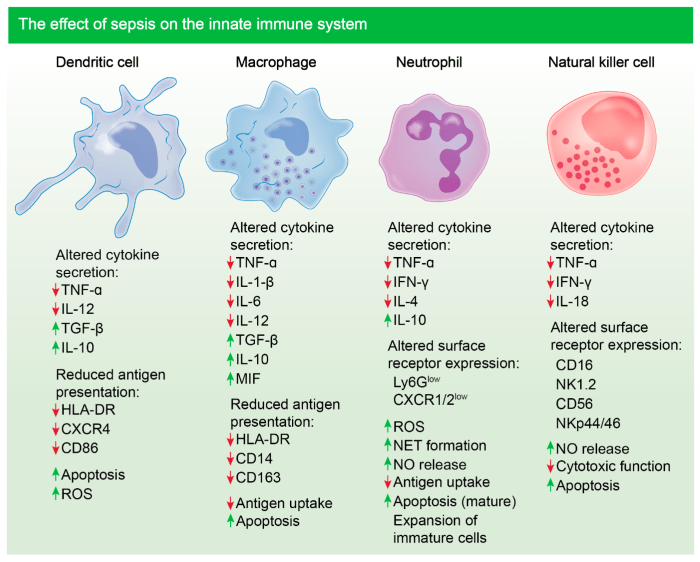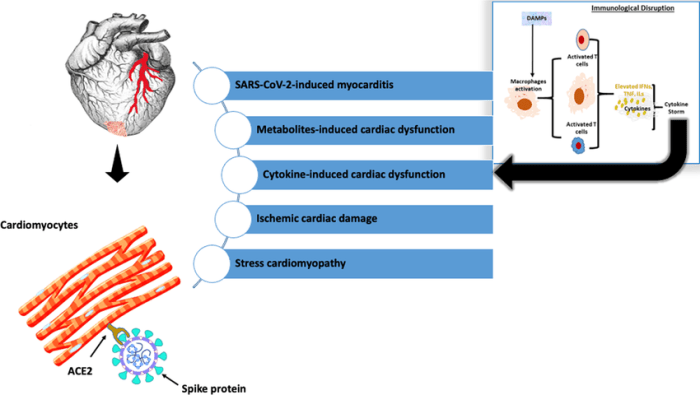An abnormal heightened immune response is a characteristic of HIV, a complex and devastating virus that attacks the immune system, weakening its ability to fight off infections. This abnormal response, characterized by excessive inflammation and immune cell activation, plays a crucial role in the progression of HIV and its associated complications.
The consequences of an abnormal immune response in HIV are far-reaching, affecting multiple organs and systems. It contributes to the development of opportunistic infections, which can be life-threatening in immunocompromised individuals. Understanding this abnormal immune response is essential for developing effective treatment strategies and improving patient outcomes.
Immune Response in HIV: An Abnormal Heightened Immune Response Is A Characteristic Of Hiv

HIV weakens the immune system by targeting and destroying CD4+ T cells, which are essential for the body to fight infections. This leads to an abnormal heightened immune response, characterized by chronic inflammation and the overproduction of certain immune cells and molecules.
Consequences of Abnormal Immune Response
The abnormal heightened immune response in HIV can have severe consequences for the body, affecting multiple organs and systems. It can lead to:
- Increased susceptibility to opportunistic infections, as the weakened immune system is unable to effectively fight off infections.
- Chronic inflammation, which can damage tissues and organs, leading to conditions such as HIV-associated neurocognitive disorders (HAND).
- Autoimmune disorders, where the immune system mistakenly attacks the body’s own tissues.
Diagnosis and Monitoring
Diagnosing an abnormal immune response in HIV involves assessing the patient’s immune status through various tests, including:
- CD4+ T cell count: This measures the number of CD4+ T cells in the blood, which is an indicator of the strength of the immune system.
- Viral load: This measures the amount of HIV in the blood, which can provide insights into the level of immune suppression.
- Immune function tests: These tests evaluate the ability of the immune system to respond to specific antigens or stimuli.
Regular monitoring of the immune system’s function is crucial for HIV patients to assess the effectiveness of treatment and make necessary adjustments.
Treatment and Management, An abnormal heightened immune response is a characteristic of hiv
Managing an abnormal immune response in HIV primarily involves suppressing the virus and restoring immune function. Antiretroviral therapy (ART) is the mainstay of treatment, which combines multiple drugs to target different stages of the viral life cycle. ART can effectively reduce viral load, improve immune function, and prevent opportunistic infections.
Prevention and Education
Preventing HIV infection is crucial to reducing the risk of developing an abnormal immune response. Education plays a vital role in promoting awareness about HIV transmission, modes of infection, and the importance of early diagnosis and treatment. Reducing the stigma associated with HIV can encourage individuals to seek testing and care, leading to better health outcomes.
Commonly Asked Questions
What is the role of the immune system in fighting HIV?
The immune system plays a crucial role in fighting HIV by recognizing and attacking infected cells. However, HIV has evolved mechanisms to evade the immune system, leading to chronic infection and immune dysfunction.
How does an abnormal immune response contribute to HIV progression?
The abnormal immune response in HIV leads to excessive inflammation and immune cell activation, damaging healthy tissues and organs. It also impairs the ability of the immune system to effectively fight off opportunistic infections.
What are the common opportunistic infections associated with HIV?
Opportunistic infections that commonly occur in HIV patients include Pneumocystis jirovecii pneumonia (PCP), cytomegalovirus (CMV) retinitis, and Kaposi’s sarcoma.
How is an abnormal immune response diagnosed in HIV?
Diagnosis involves blood tests to measure immune cell counts and assess immune function. Viral load testing can also provide insights into the level of HIV replication and its impact on the immune system.

